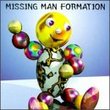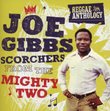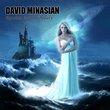| All Artists: Ludwig van Beethoven, Solomon Cutner Title: Beethoven: Piano Sonatas Nos. 29 "Hammerklavier" & 32, Op. 111 Members Wishing: 1 Total Copies: 0 Label: EMI Classics Original Release Date: 1/1/2005 Re-Release Date: 8/2/2005 Genre: Classical Styles: Forms & Genres, Sonatas, Historical Periods, Classical (c.1770-1830), Romantic (c.1820-1910), Symphonies Number of Discs: 1 SwapaCD Credits: 1 UPC: 724347686627 |
Search - Ludwig van Beethoven, Solomon Cutner :: Beethoven: Piano Sonatas Nos. 29 "Hammerklavier" & 32, Op. 111
 | Ludwig van Beethoven, Solomon Cutner Beethoven: Piano Sonatas Nos. 29 "Hammerklavier" & 32, Op. 111 Genre: Classical
|
Larger Image |
CD DetailsSimilar CDs
|
CD ReviewsA volcano at the piano John Grabowski | USA | 01/17/2010 (5 out of 5 stars) "Imagine a volcano that's been under pressure for thousands of years suddenly bursting forth, releasing thousands of tons of pressure in a flurry of thundering chords, swirling eighth notes, and furious arpeggios. That gives you some idea of what's packed in this one innocuous-looking disc. Solomon, who beat pop stars like Cher and Madonna in going by just his first name, plays these two titanic Beethoven sonatas with stunning energy and virtuosity. When you listen to these you'll be very sad that a stroke paralyzed him--not enough that he could not play at all but enough to end his career on the concert stage and the recording studio. Sad sad.
Here you will hear the most furious first movement of Op. 111 I know of, and that includes Richter. The Arietta is not the most poetic (that would be Schnabel in my book) but it is superbly played, with a gradual coiled buildup of passion that makes the finale variation magnificent in its desolation. The Hammerklavier is epic and is among the elite performances on record, along with Richter (live London 1970), Arrau, Gilels, Kovacevich and Barenboim. (Just kidding with that last one--wanted to see if you were awake.) Solomon gives us a sense of its architecture, especially in the slow movement, which in the hands of lesser minds can fall apart and become drawn-out. Tempi in both these sonatas tend to brisk, and there's a strong sense of driving rhythm, without lots of rubato. This is not Beethoven-the-budding-Romantic (which I think is a mistake). If there's one lack in his playing, it may be color. He has a certain gray sameness (paging Rudolf Serkin), though it's hard to tell if EMI's typically flat 50s/60s sound isn't at least partly to blame. (Listen to Arrau from the same period on EMI, then listen to him on Philips a couple years later to hear the difference.) Still, that one drawback shouldn't stop anyone from exploring these intense performances. These and all of Solomon's other Beethoven sonata discs are essential to any classical collection. They are cornerstones the same way that Schnabel, Casals and Heifetz are, to name just a few contemporaries. Don't walk, run." |

 Track Listings (6) - Disc #1
Track Listings (6) - Disc #1


